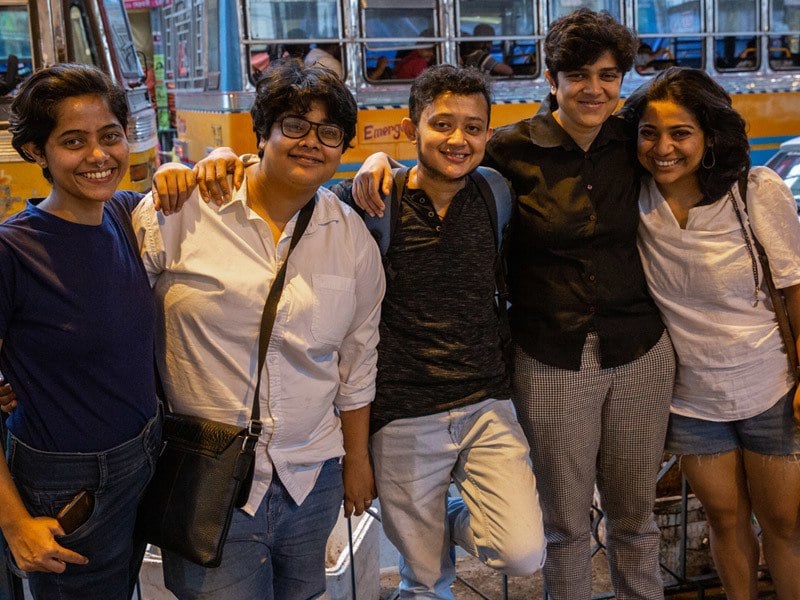In honor of Pride Month, AJWS asked LGBTQI+ activists around the world what Pride means for them. Koyel Ghosh, a managing trustee at AJWS grantee Sappho in India, shared: “You cannot experience Pride individually; it’s a collective feeling of Pride when we are able to do things for the community that has given us so much support and love… For me, Pride is a life with dignity, without any sort of prejudice.”
Koyel’s organization, Sappho for Equality, has been providing community, solidarity, safety, support and even pride to lesbians, bisexual women and trans (LBT) people in Kolkata for decades. Founded as a support group for LBT people in 1999, it has expanded into a rights-based organization leading a movement to fight discrimination based on sexual orientation and gender identity.
Sappho was created to help LBT people cope with crushing discrimination and stigma. In Kolkata, India, same-sex couples often face harassment, discrimination and violence. It can be dangerous for a trans person or same sex couple to be themselves in public. LGBTQI+ people are often ostracized from their families, have trouble getting leases on apartments and can even lose their job if their boss finds out that they are gay—giving them few safe spaces to be themselves.
Seeing a picture of what is possible
For Archie, a lesbian in her early 30’s, Sappho was an oasis. As a young person, she struggled to understand her sexuality. Her parents were devastated when she came out to them and pressured her constantly to marry a man of their choosing, and were often violent toward her. A friend referred her to Sappho as a safe and supportive space where she could be herself, and learn about the power she had to stop her parents’ violence and control.
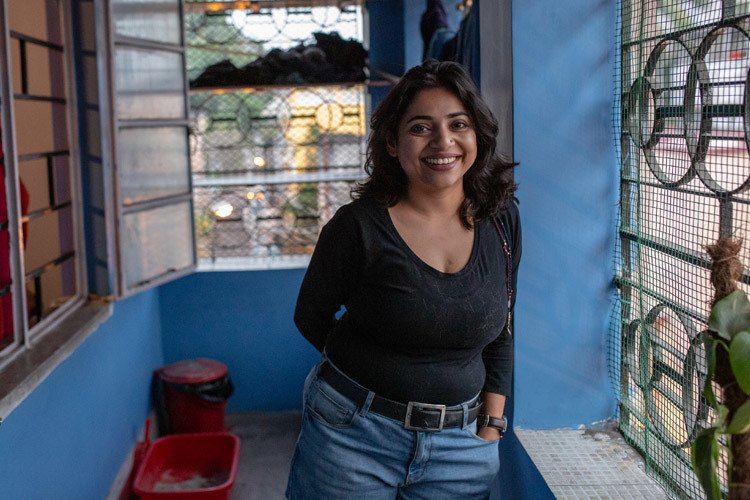
There, Archie met Malobika and Akanksha—Sappho’s co-founders who are also life partners. They were the first out lesbian couple Archie had met, and immediately she felt warm and comforted. Archie said that “For me, Sappho was life-changing. To see an older lesbian couple living happily gave me hope.”
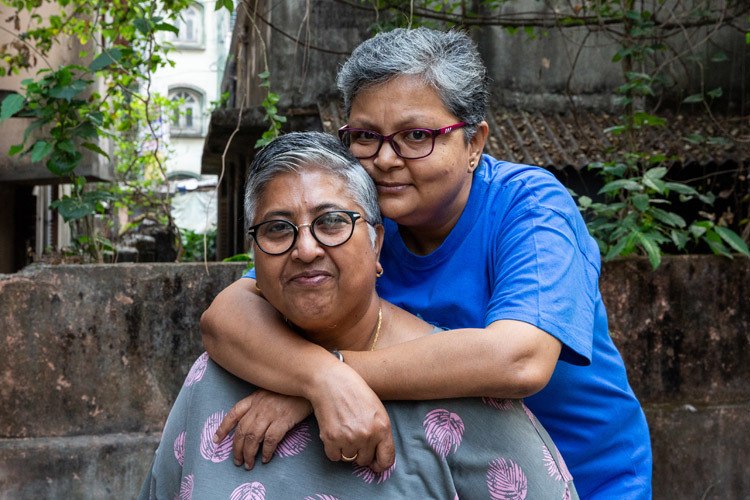
With Sappho’s role models and community of support, Archie moved out of her parents’ home. She has a good job as a teacher and a wonderfully supportive network of friends through Sappho. Though the school where she works is conservative—so she can’t come out to many of her colleagues for fear of being fired—her living space is safe.
Archie describes Sappho as the place she feels most bolstered, like an extended family. Since Sappho helped her learn to be herself safely in the world, Archie has helped countless LBT women figure out how to live outside of invalidating family environments and thrive in a society that expects women to marry men and follow tradition. Archie has gone to dozens of young women’s homes in the middle of the night to help them escape parents who were abusing them or attempting to marry them off and find them a safe place to live. She encourages them to get out and live the lives they want for themselves. Young women call her “mother savior.”
A healing community of advocates
Sappho is also there for trans people. Neel, a trans man, received support from the organization as he underwent hormone therapy and two surgeries. His parents did not support him when he came out to them, but his comrades at Sappho were there for him during this physically and emotionally draining journey. When he had complications from his surgery, Sappho members were there to care for and comfort him when his parents were not.
Neel is now a role model and leader for other young people transitioning and coming out. He makes his number available on the Sappho hotline to help other trans people transition, navigate their changed family dynamics, update their names on government documents—and more. Neel became deeply involved in advocacy with Sappho and lobbied for a Supreme Court case to allow a “transgender” gender option and the ability to change one’s gender on official government documents. He also became a member of the West Bengal transgender board which, while not the most powerful government body, he was publicly available as a resource to trans people seeking advice.
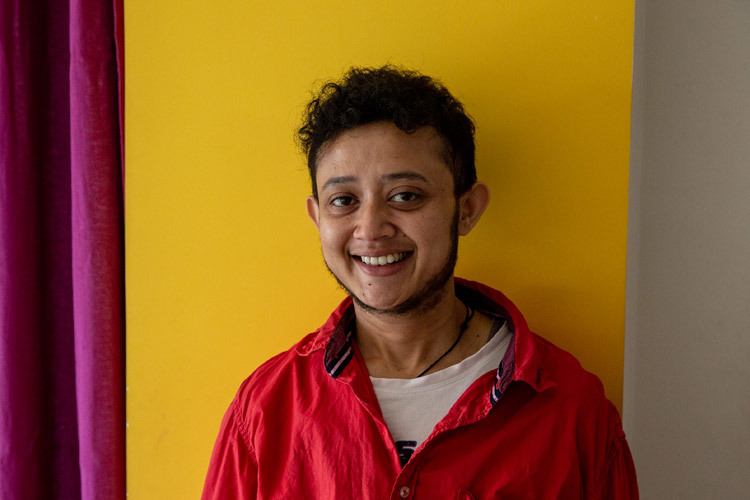
Rising to new challenges
The challenges brought by the COVID-19 pandemic have been magnified for the community Sappho works with in Kolkata. It is already challenging for LBT people to get jobs, and in the financial tumult of the pandemic, many others lost the jobs they had. India’s lockdowns have been especially strict, and for people living with parents who do not support them because of their gender identity or sexuality, being stuck at home 24/7 with their family has been devastating and sometimes violent. All of this has put an incredible strain on mental health and getting appointments with counselors or therapists has become extremely difficult with increased demand.
The Sappho community has rallied to support those in need. They already had a hotline set up before the pandemic, and staff and volunteers have adapted the types of assistance they provide. Those who work the hotline have become like social workers, helping queer and trans people get jobs, find housing, develop livelihood skills, set up small businesses, and more. They have also, unfortunately, become accustomed to calling the police to intervene when an LBT person is facing violence or harassment, though officers with misogynistic or homophobic views are rarely as helpful as they should be. Some folks who work the Sappho hotline are specializing in legal aid, to help those in crisis.
Those who lost their jobs or were kicked out of their family homes are especially vulnerable. The Sappho support network has learned how to mobilize quickly to distribute food rations to those most in need and referred people to emergency shelters when there wasn’t enough space in Sappho’s own shelter.
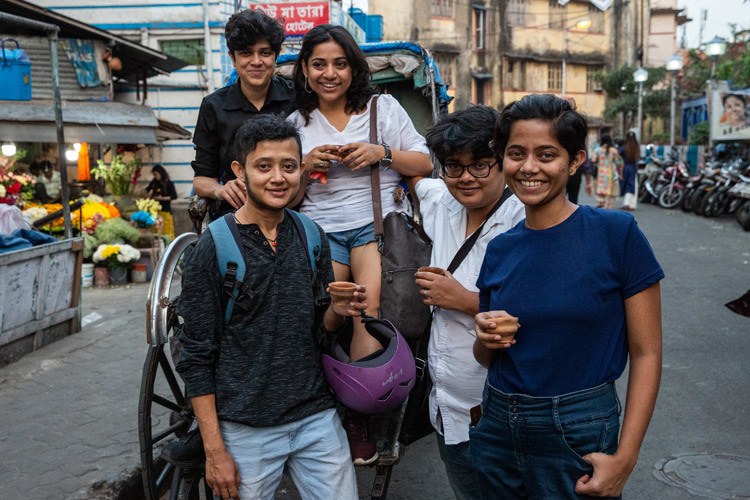
With Sappho’s support, young trans and queer people through these most vulnerable moments have a much better chance of leading fulfilling lives with dignity and follow their dreams. The organization’s advocacy is working to change laws and build a more just and equal world so that this type of crisis support will hopefully no longer be needed.
Video courtesy of Koyel Ghosh

